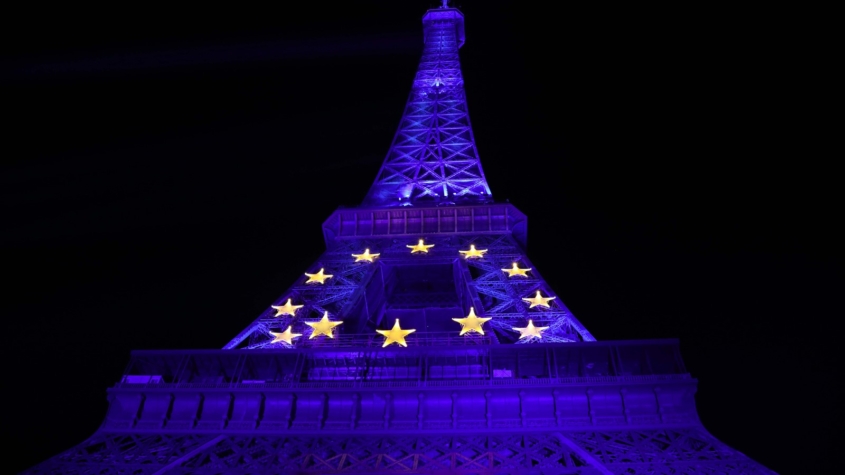As the shadow of the presidential election in France looms large over the European political debate, the French presidency of the Council of the European Union kicked off on New Year’s Day. The setting makes for a rather short scenario with a slightly political tinge but it may not necessarily be enough to meet the hype in expectations.
After all, the presidency is one of just one of the institutions and lasts six months. What is certain is that the French presidency will fuel necessary decisive discussions about our immediate to long-term future among Europeans, which, hopefully, lead to fruitful outcomes. A presidency built on the key words ‘recovery, strength, belonging’.
Ambitious targets: the French set ambitious targets for the coming six months. Notwithstanding the tumultuous times, the political, policy and legislative milestones envisaged have a clear factor: the consolidation of the EU as a major stakeholder in global affairs, its emancipation as a power broker and the assertion of its role as a leader in climate action. Binding the preceding goals together is one central theme to this presidency – sovereignty or, more practically, what the French are referring-to as ‘self-sufficiency’.
Last year’s anxiety for the importation of medical products and the current stress caused by fuel prices due to higher global demand, among other issues, underline Europe’s necessity to lay out a plan to ensure what the French like to refer to as ‘strategic autonomy’ or, more simply, Europe’s capacity to act, be it in health, industry, energy and other sectors.
There is no common definition or vision of what constitutes ‘strategic autonomy’ among member states. There is, however, a very ambitious vision for more European integration which President Emanuel Marcon set out in his well-known Sorbonne speech. These targets are coupled with more action to strengthen the rule of law in member states.
The future of Europe: historically, it is a major crisis which drives European integration, most recently manifested in the Next Generation Europe which laid out a solid platform for all to recover and instill resilience. At its core is the debt mutualisation that Macron called for in Sorbonne.
Another project called for by Macron is the Conference on the Future of Europe, which is due to conclude during the French presidency. Its impact can only be determined in time.
The Fit For 55 package represents an important step for Europe’s stance on climate as we seek to aggressively reduce emissions in the next eight years.
Notwithstanding the French desire to deliver it, this will not come without its obstacles as it will continue to put pressures on aviation and maritime, both dealt a serious blow by the pandemic.
The Carbon Border Tax, a pillar for the French presidency, will see taxes levied across Europe on the CO2 in certain imports in an attempt to generate monies for the implementation of the Green Deal.
While these ideas may sound good on paper, the devil is in the detail and we need to ensure that European competitiveness in a global market and Europe’s environmental awareness complement each other while leaving no on behind.
The French presidency is also intent on making progress on its desire to introduce a common corporate tax rate. Such policy now finds the comfort of over 100 states willing to discuss in more detail although with differing views on its implementation. Major players in the OECD have toyed with this idea for years and it has finally found fertile soil to grow.
The French presidency is also intent on making progress on its desire to introduce a common corporate tax rate.
Digital transformation: a capacity to act should not be resignation from leading in a world moving towards digital hyperconnectivity and technological transformations. On the contrary, Europe is a technological champion which must leverage its strengths by reinforcing its capacities and addressing its evolving vulnerabilities. Among other things this requires a supportive and future-proof regulatory and financial environment. Progress is foreseen in the French tenure at the helm of the EU when it comes to inducing the
regulation and taking the responsibility of digital platforms operating or giving services in Europe.
The migration challenge: we certainly subscribe to the presidency’s rationale that, in facing the migration challenge, the best response is a European response working hand in hand with countries of origin and transit. Migration cannot be controlled as long as Europe remains a beacon of hope, values and well-being but it can be better managed if the right instruments are in place externally and internally. It starts with giving people reasons not to risk their life and continues by undercutting the business model of smugglers. Once migrants arrive in the EU by land and sea, there must be mechanisms that ensure a balance of responsibility and solidarity that actually work on the ground.
The discussion on a minimum wage in Europe is set to move on to the next stage where both the Council and the European Parliament need to agree on a final text. It will not lead to a common minimum wage but it is intended to drive states which, like us, have a statutory minimum threshold and those which do not have such a threshold, to ensure a decent living and strengthen social dialogue in the industry.
Consolidating Europe’s place in the world also means a tall order in the diplomatic realm and this French presidency will be key in taking forward EU-UK relations, discussions on the Indo-Pacific region as well as with
Australia. An EU-Africa summit is also taking place in February. In terms of the common defense and security policy, the French presidency will also endeavor to contribute towards the endorsement of the European Strategic Compass by the European Council on March 24 and 25.
The high ambitions amid the global context make for a tangy sensation around the French presidency which has just started. As a country, we shall be present while hopeful for delivery of change that matters.


